Yusef Komunyakaa Quotes & Sayings
17 most famous Yusef Komunyakaa quotes and sayings (poet). These are the first 10 quotes we have.
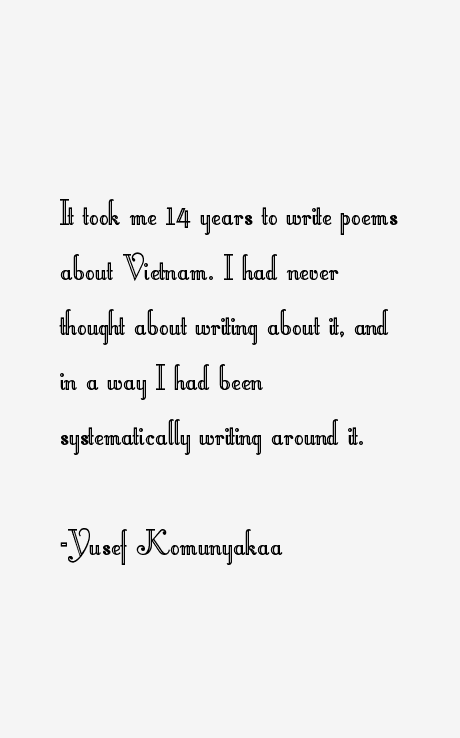
“It took me 14 years to write poems about Vietnam. I had never thought about writing about it, and in a way I had been systematically writing around it.”
“I originally wanted to embrace the imagery and forthrightness of rap music. There are some interesting, dynamic voices in rap. But I find most of it irresponsible in its overt violence and commercialization of anger. As artists, we believe we can will action through language. If that's the case, we have to take responsibility for what we say.”
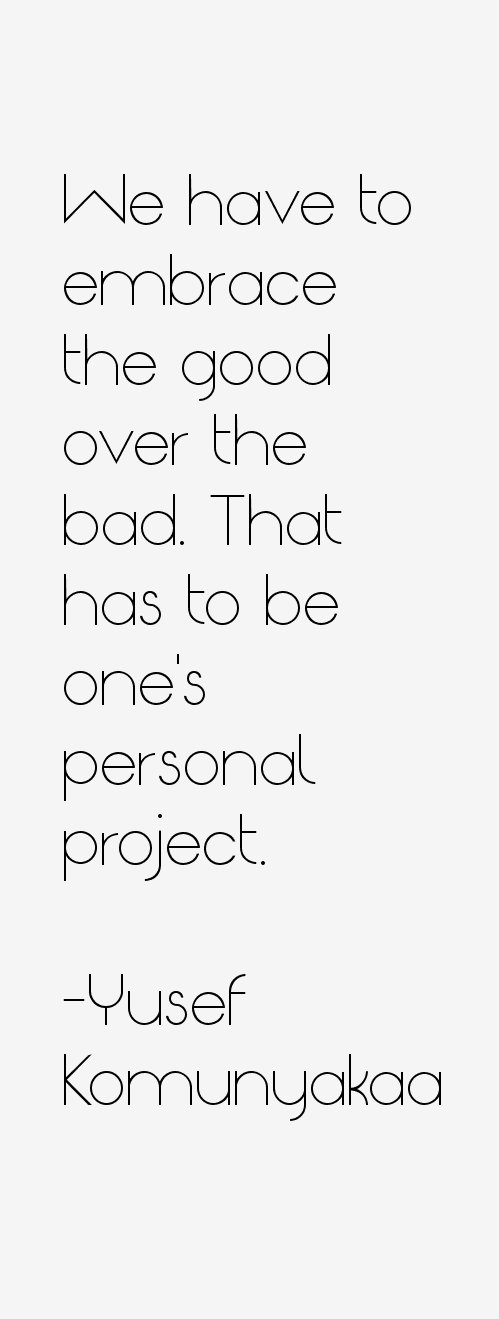
“We have to embrace the good over the bad. That has to be one's personal project.”
“I define poetry as celebration and confrontation. When we witness something, are we responsible for what we witness? That's an on-going existential question. Perhaps we are and perhaps there's a kind of daring, a kind of necessary energetic questioning. Because often I say it's not what we know, it's what we can risk discovering.”
“My great-grandfather Melvin had been a carpenter - so was my father - and they taught me the value of tools: saws, hammers, chisels, files and rulers. It all dealt with conciseness and precision. It eliminated guesswork. One has to know his tools, so he doesn't work against himself.”
“Students often have such a lofty idea of what a poem is, and I want them to realize that their own lives are where the poetry comes from. The most important things are to respect the language; to know the classical rules, even if only to break them; and to be prepared to edit, to revise, to shape.”
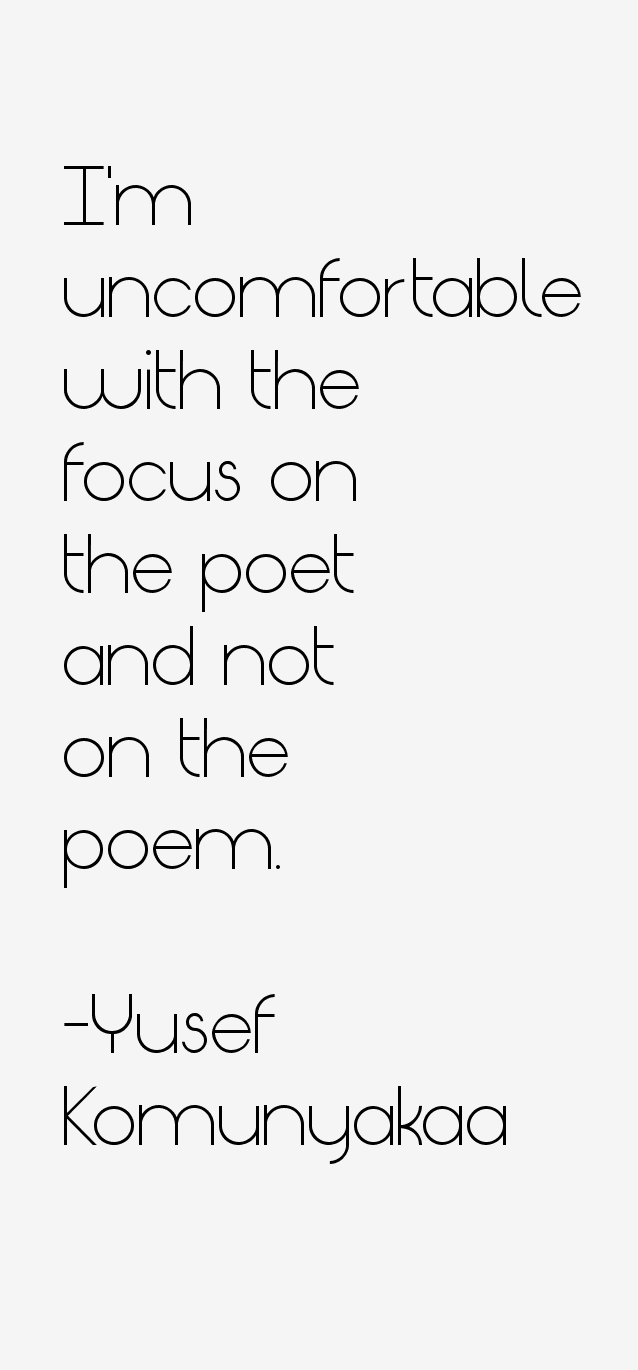
“I'm uncomfortable with the focus on the poet and not on the poem.”
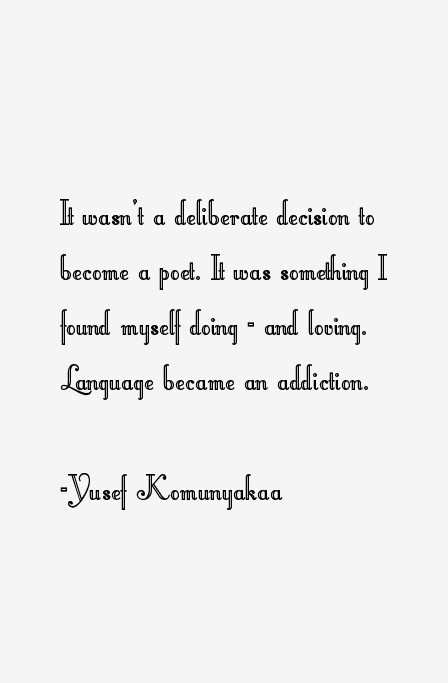
“It wasn't a deliberate decision to become a poet. It was something I found myself doing - and loving. Language became an addiction.”
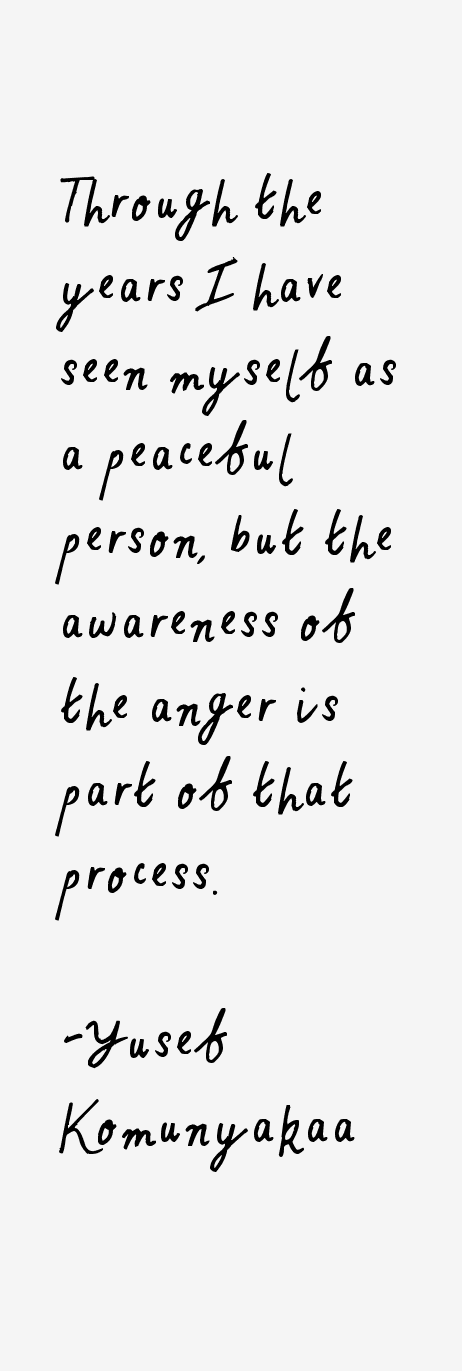
“Through the years I have seen myself as a peaceful person, but the awareness of the anger is part of that process.”
“Vietnam helped me to look at the horror and terror in the hearts of people and realize how we can't aim guns and set booby traps for people we have never spoken a word to. That kind of impersonal violence mystifies me.”
Yusef Komunyakaa Quotes Rating
No Ratings Yet
Leave A Comment
























